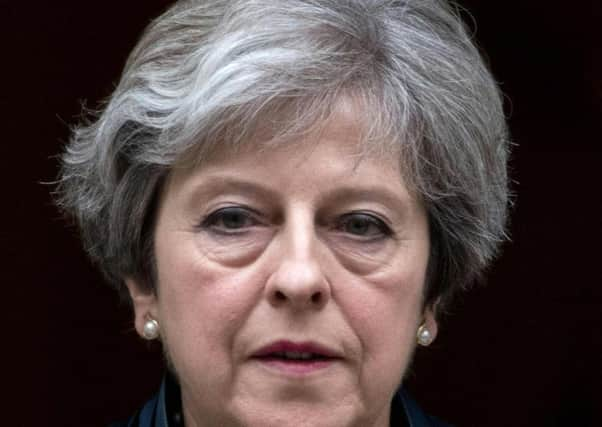Paris Gourtsoyannis: May's Brexit plan is dead on arrival


It was a stroke of genius, albeit one borne of desperation. Theresa May gives nothing away that she doesn’t want to, so we can assume that she fully intended to divulge the Brexit ‘advice’ given to her by Donald Trump in her interview with Andrew Marr on Sunday.
As an attempt to deflect from all the other problems she’s facing, it was a valiant failure. In fact, the US President’s advice may not have been that daft after all.
Advertisement
Hide AdAdvertisement
Hide AdMay stands as much chance of success suing the European Union as she does getting her own Brexit strategy through parliament.
It feels faintly ridiculous to call the document produced by the Cabinet away day at Chequers less than a fortnight ago an “agreement” – it has produced so little agreement that two of the highest profile members of the cabinet quit in protest. While the departures that followed have hardly been box office, someone with a job title has quit either the government or Conservative HQ every day since last Monday.
The Chequers deal and the White Paper that followed are about as unloved as any words committed to paper since June 23, 2016.
Brexiteers hate it, saying it will keep the UK tied to EU regulations and bind the hands of parliament. Now that they’re no longer the most rebellious bunch on the Tory benches, Remainers also feel emboldened to kick the government. Justine Greening has said she is in favour of a new referendum on whether to take the Prime Minister’s deal or stay in the EU.
Corbyn loyalists on the Labour benches hate the plan because they have to, even though it’s difficult to pick out the differences between what May is proposing and the opposition’s own plans.
Pro-EU Labour MPs, a group that largely overlaps with those out of favour on the front bench, also hate it; they resent being asked by Tory moderates terrified of a no-deal Brexit to lend their votes to the government so that the economy isn’t taken over a cliff.
Most significantly of all, voters don’t seem too keen on it either. The first round of opinion polls since the Chequers deal have come out, and five of the last seven have Labour either tied in or in the lead – something that hasn’t been seen since February.
Yesterday’s capitulation by the government over four amendments to customs legislation confirms that Conservative MPs have rediscovered the Brexit spirit that saw a majority of them campaign against David Cameron in the 2016 referendum. Acting together, they have the numbers to dictate policy on Brexit.
Advertisement
Hide AdAdvertisement
Hide AdThe government will cling to its White Paper because it has no other choice now that it’s published and there are less than six months until an exit agreement with the EU has to be agreed – but it is a lifeless document. May cannot hope to get a Brexit deal based on it through parliament, even if she can get it past Brussels.
In response, both the Prime Minister and Nicola Sturgeon have tried to be optimistic. May sought to enforce a measure of discipline by warning Tory MPs it’s either her Brexit or no Brexit. Meanwhile, the First Minister has suggested the White Paper presents an opening to push the government even further, towards full membership of the single market and customs union. For different reasons, both are hiding the alarming reality: that the UK is closer to a no-deal scenario than ever before. That is the guaranteed outcome if parliament can’t accept any form of Brexit as expressed in a withdrawal treaty.
Even if, at the last minute, the EU dictates terms and sets out a take-it-or-leave-it soft Brexit offer, would MPs be able to pass it? If the decision was outsourced to the public in a new referendum, would they back it?
The risk of no-deal bears repeating because it’s clear that the public aren’t prepared: one poll in the past few days found that 51 per cent of respondents agreed with the statement that “no deal for Britain is better than a bad deal”, with just 20 per cent opposed.
Only a lack of understanding of the consequences could produce that result, but when MPs have themselves failed to understand that the UK probably had the best deal as a member of the EU, and could only ever negotiate how much Brexit would be mitigated, then how can the public be expected to understand?